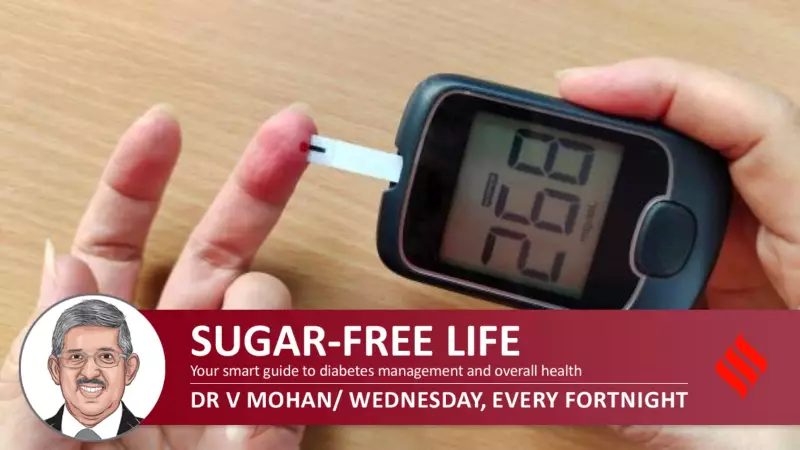
When Prashant, a dedicated diabetes patient, walked into Dr. V Mohan's clinic in New Delhi complaining of persistent brain fog, fatigue, and weakness, it presented a medical mystery that required immediate investigation. Despite meticulously following his medication schedule, maintaining strict dietary controls, and exercising regularly, something was clearly wrong.
The Patient's Puzzle: Perfect Routine, Poor Results
Prashant had completely transformed his lifestyle after being diagnosed with diabetes. He maintained a rigorous exercise regimen, ensured eight hours of sleep nightly, and strictly followed his medication protocol. However, during his November 19, 2025 consultation, he appeared visibly exhausted and reported troubling symptoms that had developed over recent weeks.
"I am taking my medication on time and maintaining my food and exercise routines. But over the last few weeks, I have been feeling shaky, weak and have brain fog. I feel like resting all the time," the patient revealed to his concerned doctor.
The Critical Discovery: Over-Exercising and Under-Nourishing
Upon reviewing Prashant's routine more carefully, Dr. Mohan identified two problematic patterns. The patient had eliminated carbohydrates completely from every meal while simultaneously increasing his daily exercise duration by an additional 20 minutes. This combination created a perfect storm for physical depletion.
This scenario represents one of the most common mistakes newly diagnosed diabetes patients make - severely restricting calories and carbohydrates to dangerous levels while increasing physical activity beyond what their undernourished bodies can sustain.
Why Zero-Carb Diets Can Be Dangerous for Diabetes Patients
Contrary to popular belief, completely eliminating carbohydrates can be particularly harmful for people managing diabetes, especially those using insulin. The approach can trigger several serious health complications:
Hypoglycemia risk increases dramatically when carbohydrates are completely absent, potentially causing dangerous blood sugar drops. The exclusion of fruits, vegetables, and whole grains leads to essential vitamin, mineral, and fiber deficiencies that are crucial for overall health.
Electrolyte imbalance and dehydration become significant concerns because stored glycogen, which the body consumes when carbohydrates are unavailable, typically releases water during metabolism. Most alarmingly, ketoacidosis can develop when the blood becomes toxic from excessive ketone production.
Dr. Mohan explains the mechanism: "Deprived of carbohydrates, the body burns fat for energy instead of glucose, breaking fat to organic compounds called ketones. This process is called ketosis. But when the body produces too many ketones, they make the blood acidic."
Recognizing and Preventing Diabetes Management Mistakes
Dr. Mohan emphasizes several crucial strategies for safe and effective diabetes management. Any calorie-restricted diet must include adequate protein along with essential minerals and vitamins to prevent undernutrition. Resistance training should be incorporated at least two to three times weekly to maintain muscle strength and prevent frailty.
A balanced low-carb diet that includes nutrient-dense, high-fiber carbohydrate sources like leafy vegetables, nuts, and seeds is far superior to a completely zero-carb approach. Proper hydration and sufficient calorie intake remain essential, particularly when using weight loss medications that might reduce lean muscle mass.
The doctor concludes that brain fog and fatigue often signal nutritional deficiencies in diabetes patients who have taken carbohydrate restriction to dangerous extremes. The solution lies not in complete elimination but in strategic inclusion of complex carbohydrates that provide sustained energy without spiking blood sugar levels.






